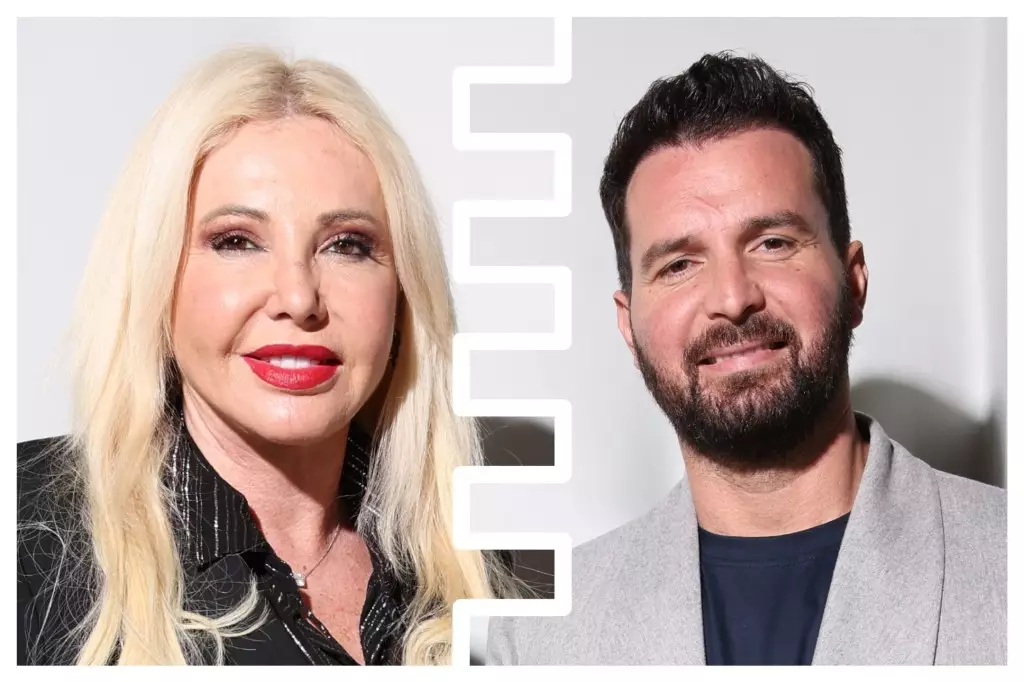The contentious separation between filmmaker Andrea Iervolino and producer Monika Bacardi has reached a new chapter marked by legal disputes and corporate transformations. Once co-founders of ILBE (Iervolino and Lady Bacardi Entertainment), the former partners are now embroiled in a public feud that threatens to overshadow their past successes in the entertainment industry. This discord notably erupted following a recent shareholders meeting that set the stage for serious legal confrontations and a significant rebranding of their joint enterprise.
In a press announcement from ILBE, stakeholders decided to initiate legal proceedings against Iervolino while also appointing the prestigious Italian law firm Pedersoli Gattai to oversee investigations into alleged irregularities. The meeting also concluded with the renaming of the organization to Lady Bacardi Media S.p.A., or LBM S.p.A., indicating a strategic pivot from their established brand in an effort to redefine the company’s identity post-split.
This shareholders meeting marked a critical point, being the first official discussion since Iervolino chose to distance himself from ILBE and launch his own enterprise, The Andrea Iervolino Company (TAIC). This decision has been interpreted by Bacardi as an attempt by Iervolino to repurpose projects developed under their banner, raising ethical questions regarding ownership and rights to intellectual property. The outcome of this meeting serves as a reflection of the escalating tensions between the two.
The public dialogue between Iervolino and Bacardi has been punctuated by conflicting narratives. Bacardi has accused Iervolino of establishing a conflict of interest by attempting to merge ILBE with the social media platform Tatatu, in which he holds a dominant 96% share. Following the failed merger negotiations, Bacardi suggests that Iervolino shifted focus towards new productions under his independent company, potentially drawing on shared content without authorization.
For his part, Iervolino has vehemently rejected these accusations, labeling the claims as unfounded and driven by personal animosities. He insists that none of the projects in TAIC have any ties to the rights of former ILBE productions, asserting that Bacardi’s allegations are merely an exaggerated narrative lacking factual substantiation.
The decision to pursue legal avenues speaks to the gravity of the situation. ILBE’s shareholders expressed concern over potential financial mismanagement, particularly regarding funds purportedly diverted towards Tatatu ventures. With a law firm now appointed to investigate these claims, the technicalities around finances, project rights, and ownership will likely become a significant focus of scrutiny in the months to follow. The forthcoming legal battles will not only determine the financial implications for both parties but could also set precedents in the demographic landscape of media partnerships and collaborations.
In light of the rift, ILBE has undergone substantial restructuring with the dissolution of its previous Board of Statutory Auditors and the appointment of new directors, reflecting a need for stability and renewed direction amidst the chaos. The installation of Mauro Paoloni as president of a newly structured Board of Directors highlights an attempt to revitalize stakeholder confidence, as the leadership aims to skirt around the controversies that currently hold sway over the company’s operational effectiveness.
The newly appointed board, comprising various professionals including the producer of the Netflix series “Emily in Paris,” represents a strategic move to inject fresh insight and leadership to help redirect the company towards a successful future. However, operational success will depend significantly on resolving the ongoing disputes and restoring trust between remaining stakeholders.
With a backdrop of changing dynamics in an evolving media landscape, the outcome of this notable split between two influential figures will resonate far beyond their individual careers. The unfolding saga may leave a lasting impact on professional relationships within Hollywood and beyond, challenging the norms of cooperation and showcasing the vulnerabilities that accompany partnerships in the high-stakes world of film production.
As both Iervolino and Bacardi navigate their respective paths, the lessons learned from this public dispute may serve as cautionary tales for future collaborations where personal interests and creative visions must be carefully aligned to prevent detrimental breakdowns. The entertainment industry is observing closely, recognizing that the professional realm can often collide with personal emotions, leading to complex and sometimes divisive outcomes.


Leave a Reply